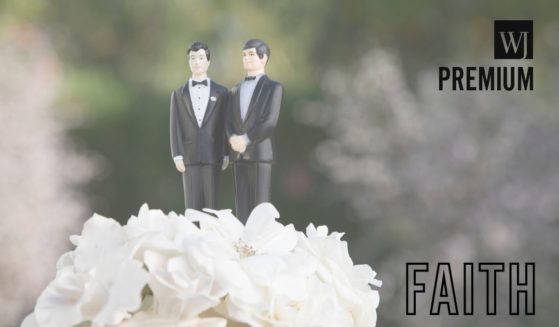Flashback: How the Media Mentions 'White' Perps but Not Blacks - And Look What They Did to Mugshots
Question — when is the race of the perpetrator of a crime relevant to a media story?
A domestic dispute in which a man shoots his wife? Probably not.
A carjacker successfully steals a car, then is caught by police? Again, maybe not.
A black man shoots up a subway shouting hate against whites, Jews, and Hispanics? Looks like race could be important to the media reporting.
A comparison of black-on-white and black-on-black violent crime statistics? In that case, race obviously would be a central theme.
And on it goes. Among editorial decisions made in newsrooms around the country — when is race relevant to a news story?
The May 25, 2020 death of George Floyd for which white cop Derek Chauvin was convicted of murder demands racial identification if one subscribes to the promoted narrative.
That narrative says that the compelling photo of Chavin pinning Floyd to the pavement proves that white cops are racist and that they routinely kill black men.
That was the narrative, and race, whether justified or not, became a central theme, which had widespread public repercussions — including riots.
Immediately following Floyd’s death, there was a change in media reporting on race and crime, according to a 2022 article by The Washington Free Beacon.
Reviewing nearly 1,100 homicide articles in various cities between 2019 and 2021, the Beacon found prior to Floyd’s death, newspapers would report the race of a white perpetrator in 13 percent of the stories, compared to telling the race of black perpetrators 7 percent of the time.
That’s about a 2-to-1 ratio.
But after May 2020, that ratio rose to 7-to-1, with racial identity of whites reported 28 percent of the time, blacks 4 percent.
According to the Beacon, “The data suggest an alarming editorial trend in which major papers routinely omit information from news reports, presenting readers with a skewed picture of who does and doesn’t commit crime.”
These omissions were part of the “’racial reckoning’ that swept newsrooms” following Floyd’s death, the Beacon said.
The new racial awareness “saw journalists dramatically overhauling crime coverage to emphasize the view that the criminal justice system is racist at the root — perhaps at the expense of honesty about individual offenders’ crimes,” according to the Beacon.
And major news media, the Beacon said, have substituted “racial justice” over journalistic “objectivity”
Not even a month had passed since Floyd’s death when some newspapers announced they would no longer publish mug shots of alleged perpetrators.
For instance, The Orlando Sentinel and the South Florida Sun Sentinel, jointly owned by Tribune Publishing, each stated: “We’ve come to realize that without context, the [mugshot] galleries have little journalistic value and may have reinforced negative stereotypes.”
And while we here at The Western Journal tend to follow the Associated Press Style Guide as sort of a roadmap on grammar, punctuation, spelling, and such, a few paragraphs ago I violated the guide’s standards.
I wrote the word “riots,” usage of which, a few months after the Floyd incident, AP said should be discouraged.
It has racial connotations, don’t you know?
So in media efforts to censor facts — and that’s what they are — readers, listeners, and viewers are on their own regarding racial or other uncomfortable dimensions that may be relevant to a story.
With so much touted about racism and its perceived effects, coupled with other issues including religious aspects of Middle Eastern conflicts and ethnicities of border crossers, how are we to understand what is going on?
Which, of course, leads to the conclusion that they — like so many of our once-trusted institutions — really don’t want us to know.
Ain’t that a riot?
Truth and Accuracy
We are committed to truth and accuracy in all of our journalism. Read our editorial standards.












